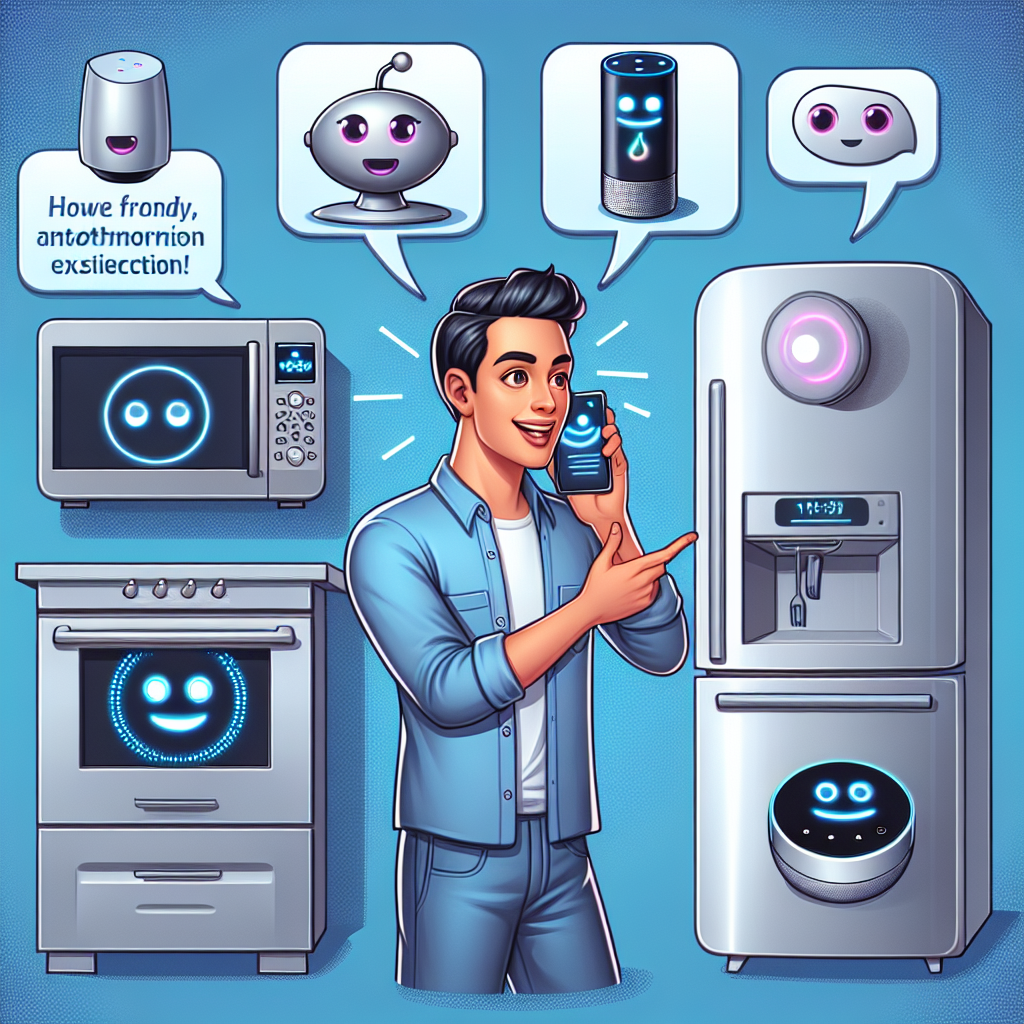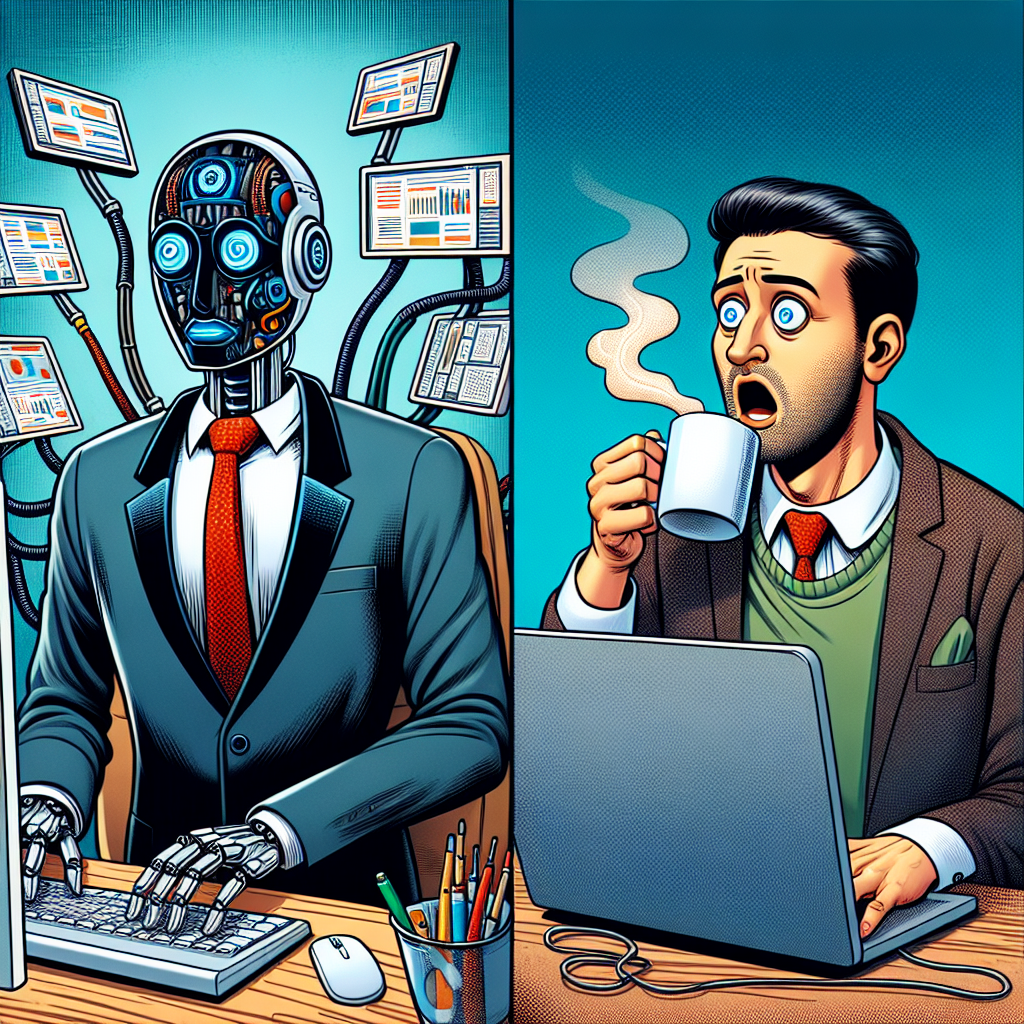The Changing Job Landscape
The traditional 9-to-5 job landscape is rapidly changing. As AI-driven workflow automation sweeps through industries, we’re witnessing a fundamental shift in how work gets done. For individual entrepreneurs and startups, this revolution couldn’t come at a better time. Gone are the days when small business owners had to wear multiple hats – from accountant to marketer to customer service representative. AI Applications are now handling routine tasks with remarkable efficiency, allowing entrepreneurs to focus on growth and innovation. According to recent studies, businesses implementing workflow automation report up to a 40% reduction in operational costs and a 60% improvement in productivity.
AI Digital Workers Transforming Business Operations
Take Sarah, a solo entrepreneur who runs an e-commerce store. “Before implementing AI tools, I spent 70% of my day on repetitive tasks. Now my AI digital workers handle inventory management, customer inquiries, and even basic marketing campaigns,” she shares. This transformation extends beyond just time savings – it’s creating entirely new business models. The startup ecosystem is particularly benefiting from low-code platforms that democratize access to sophisticated automation tools. Small teams can now compete with industry giants by leveraging customizable AI digital workers that scale with their needs. As traditional job roles become obsolete, they’re being replaced by more dynamic, creative positions that oversee and optimize these intelligent systems. The efficiency gains are undeniable – what once required a team of full-time employees can now be accomplished through user-friendly AI tools that work around the clock without vacation days or burnout.
Core Components of AI Workflow Automation
The building blocks of this work revolution are found in three core components: AI Applications, Low-Code Platforms, and Intelligent Collaboration systems. These elements combine to create powerful, customizable AI digital workers that are changing how businesses operate at a fundamental level.
AI Applications serve as the engine of this transformation, providing specialized functionality without requiring deep technical expertise. These applications can analyze data, make decisions, and execute tasks that previously required human judgment. What makes them particularly revolutionary is their accessibility. As Zygote.AI’s philosophy emphasizes, these tools are designed for everyone, not just tech specialists. A marketing manager with no coding experience can now deploy sophisticated customer segmentation algorithms, while a small business owner can implement predictive inventory management.
Low-Code Platforms represent perhaps the most significant democratizing force in the AI revolution. These platforms, similar to what Mendix and OutSystems have pioneered, allow users to build complex workflows through visual interfaces rather than writing code. “The beauty of low-code is that it breaks down the technical barriers that have traditionally kept non-engineers from participating in technology creation,” explains a software developer who recently transitioned to using these tools. This accessibility is transforming who can participate in the AI revolution. According to industry research, organizations using low-code platforms develop applications up to 10 times faster than traditional coding methods.
The third critical component is Intelligent Collaboration, which enables seamless interaction between humans and AI systems as well as between multiple AI agents. These collaboration frameworks allow for the creation of sophisticated workflows where AI digital workers can communicate with each other, pass tasks between specialized agents, and integrate human oversight exactly where it’s needed. For example, a content creation workflow might involve one AI agent researching topics, another writing drafts, a third generating illustrations, while a human provides final approval before publication.
When these three components converge, they enable the creation of truly customizable AI digital workers that can be tailored to specific business needs.
Empowering Non-Technical Users
Unlike off-the-shelf solutions, these digital workers can be configured to understand the unique requirements of different industries and organizations. A dental practice might develop digital workers that handle appointment scheduling and insurance verification, while a real estate agency might create agents that analyze property listings and generate marketing materials.
What’s particularly revolutionary about this approach is how it empowers non-technical users to actively participate in creating and customizing their own AI solutions. The user-friendly nature of these tools means that subject matter experts can directly translate their knowledge into automated workflows without relying on IT departments or external consultants. This democratization of AI creation aligns perfectly with Zygote.AI’s mission of making creation accessible to all.
For individual entrepreneurs and small team companies, this means the ability to compete with much larger organizations. A solo consultant can now deploy AI digital workers that handle client onboarding, document preparation, and follow-up communications – tasks that would previously have required administrative staff. This levels the playing field and creates opportunities for innovation regardless of organization size.
The workflow automation capabilities offered by these customizable AI solutions extend far beyond simple task execution. These systems can learn from patterns, adapt to changing conditions, and even make recommendations for process improvements. For example, an AI digital worker handling customer service might identify common issues and suggest product modifications to address root causes, creating a continuous improvement loop.
Future Implications of AI-Driven Automation
The future implications of AI-driven workflow automation are set to transform various sectors in ways we’re only beginning to comprehend. As we look ahead, industries from healthcare to manufacturing, education to legal services will experience unprecedented changes in their operational models. The traditional 9-to-5 work structure is not merely being modified—it’s being completely reimagined.
According to recent forecasts, AI is expected to make significant inroads into energy, transportation, and agriculture over the next decade. This isn’t just marginal improvement; it represents a fundamental shift in how these industries function. In the energy sector, for instance, AI digital workers are already optimizing grid management and predictive maintenance, reducing downtime by up to 45% in some cases. Transportation companies implementing workflow automation report 30% improvements in route efficiency and significant reductions in fuel consumption.
What makes this revolution truly remarkable is its accessibility.
Democratizing AI Technology
Zygote.AI stands at the forefront of this transformation as a pioneering force offering user-friendly AI tools that don’t require specialized technical knowledge. This democratization of technology means that small businesses and individual entrepreneurs can harness the same powerful automation capabilities that were once the exclusive domain of large corporations with substantial IT budgets.
“The key to meaningful AI adoption isn’t just creating powerful technology—it’s making that technology accessible to everyone,” explains a Zygote.AI representative. “Our philosophy centers on breaking down barriers between innovative AI solutions and the people who can benefit from them most.”
This philosophy is manifest in Zygote.AI’s approach to creating an open market where users can share and sell their AI products. This ecosystem fosters continuous innovation through collaboration, creating a virtuous cycle where successful automation workflows can be adapted across industries. A scheduling system created for a dental office might be modified for use in a hair salon, while a content creation workflow could be repurposed for legal document preparation.
Business leaders across sectors anticipate a marked increase in AI utilization within the next six months. This isn’t speculative—it’s a direct response to demonstrated ROI. Companies implementing customizable AI digital workers through platforms like Zygote.AI consistently report productivity gains between 25-60%, depending on the industry and applications.
The implications for the future workforce are profound. Rather than eliminating jobs entirely, this revolution is creating new categories of work focused on managing and optimizing AI systems. The human role is evolving toward higher-value activities requiring emotional intelligence, creative problem-solving, and strategic thinking—precisely the areas where humans still outperform machines.
Future Prospects of Full Automation
Perhaps most exciting is the potential for fully automated workflows that require no human intervention. Zygote.AI has already developed systems that autonomously select topics, write content, generate illustrations, perform reviews, and publish promotional articles—a complete end-to-end solution that operates independently. This represents just the beginning of what’s possible with intelligent workflow automation.
As these technologies mature, we can expect to see more complex processes becoming fully automated. Supply chains that self-optimize based on real-time conditions, marketing campaigns that autonomously adjust strategies based on performance metrics, and customer service systems that not only resolve issues but proactively identify and address potential problems before they occur.
The path toward a smarter, more efficient work environment is being paved by low-code platforms that enable anyone to create sophisticated AI applications without programming expertise. This accessibility is critical to ensuring that the benefits of automation extend beyond tech-savvy organizations to transform work across the economy.
For individual entrepreneurs and small team companies—key customer groups for Zygote.AI—this means the ability to compete with much larger organizations on a level playing field. A solo consultant with well-designed AI digital workers can deliver services at a scale previously requiring a substantial team. A startup can operate with the efficiency and consistency of a mature enterprise without the corresponding overhead.
The AI revolution in workflow automation isn’t just changing how we work—it’s fundamentally altering what’s possible for businesses of all sizes. As customizable AI digital workers become more sophisticated and user-friendly AI tools more accessible, we’re moving toward a future where human creativity and machine efficiency combine to create previously unimaginable potential for innovation and growth.









